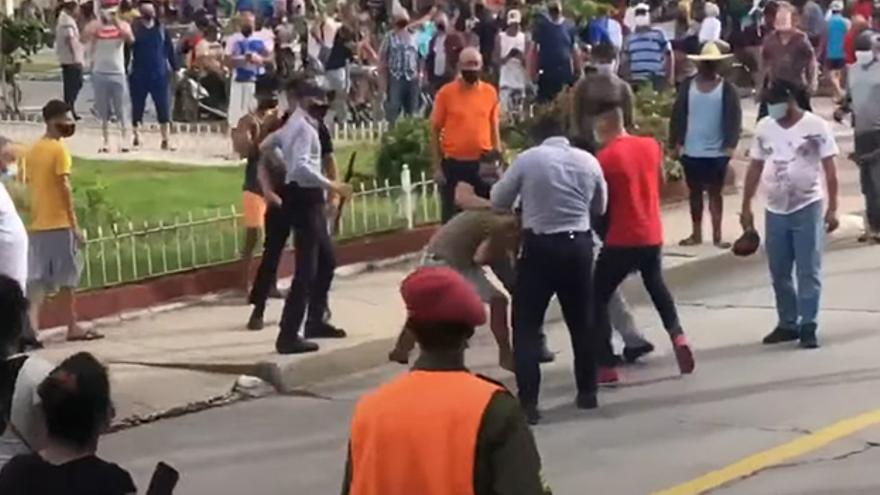
![]() EFE (via 14ymedio), Miami, July 6, 2022 — Cuba may be the scene of many rebellions in the short-term, according to a report by the Cuban Observatory of Conflicts (OCC) released on Tuesday, which points out that the 258 protests of last June exceeded by 11 those of the same period in 2021.
EFE (via 14ymedio), Miami, July 6, 2022 — Cuba may be the scene of many rebellions in the short-term, according to a report by the Cuban Observatory of Conflicts (OCC) released on Tuesday, which points out that the 258 protests of last June exceeded by 11 those of the same period in 2021.
The June report considers that the possibility of “one or more rebellions of considerable magnitude is extremely high in the short term, whether or not they occur this July.”
The OCC report, an autonomous civil society project supported by the Foundation for Human Rights in Cuba, based in the United States, emphasizes that Havana continues to believe that “without solving the hell of daily life it will prevent new rebellions by cutting off communications among potential rebels.”
In June, protests motivated by economic and social rights predominated for the second time, totaling 175 (68%), while 83 (32%) focused on political and civil rights.
The OCC indicates that, in fact, the largest increase occurred in protests for economic and social rights, 62% more than the previous month. This can be attributed to the deterioration of living conditions, which the OCC classifies as “daily death.”
In addition to the protests against product shortages, inflation and the collapse of the health system, 39 caused by power outages were added.
The report points out that since July 11, 2021, when Cuba witnessed the largest anti-government protests in its recent history, the Government “has demonstrated with its immobility that it didn’t understand that popular consent to the system had been exhausted.”
“These circumstances, together with the sudden death of General (Luis Alberto Rodríguez) López-Calleja and the ever closer eventuality of the death of Raúl Castro, mean that new scenarios of social rebellions can open up in the coming months,” it warns.
The report says that rebellions can have “violent tonalities in the increasingly deteriorated Cuban reality,” creating conditions for a rupture in the chain of command of the Ministry of the Revolutionary Armed Forces and the Ministry of the Interior if there are units that refuse to repress them.
It indicates that the threats to governance in Cuba go beyond the conflict between the population and power, since there are other factors such as the social distance between generals associated with the Grupo de Administración Empresarial S.A (Gaesa) and officers exclusively in charge of military tasks.
The OCC claims to know that there is a growing malaise within Gaesa in the active and retired officers of the Revolutionary Armed Forces (FAR), a multisectoral complex with more than fifty companies that is not accountable to the National Assembly.
’There are indications that this was the factor associated with the abrupt dismissal of General Leopoldo Cintra Frías” in 2021, it emphasizes.
Translated by Regina Anavy
____________
COLLABORATE WITH OUR WORK: The 14ymedio team is committed to practicing serious journalism that reflects Cuba’s reality in all its depth. Thank you for joining us on this long journey. We invite you to continue supporting us by becoming a member of 14ymedio now. Together we can continue transforming journalism in Cuba.
